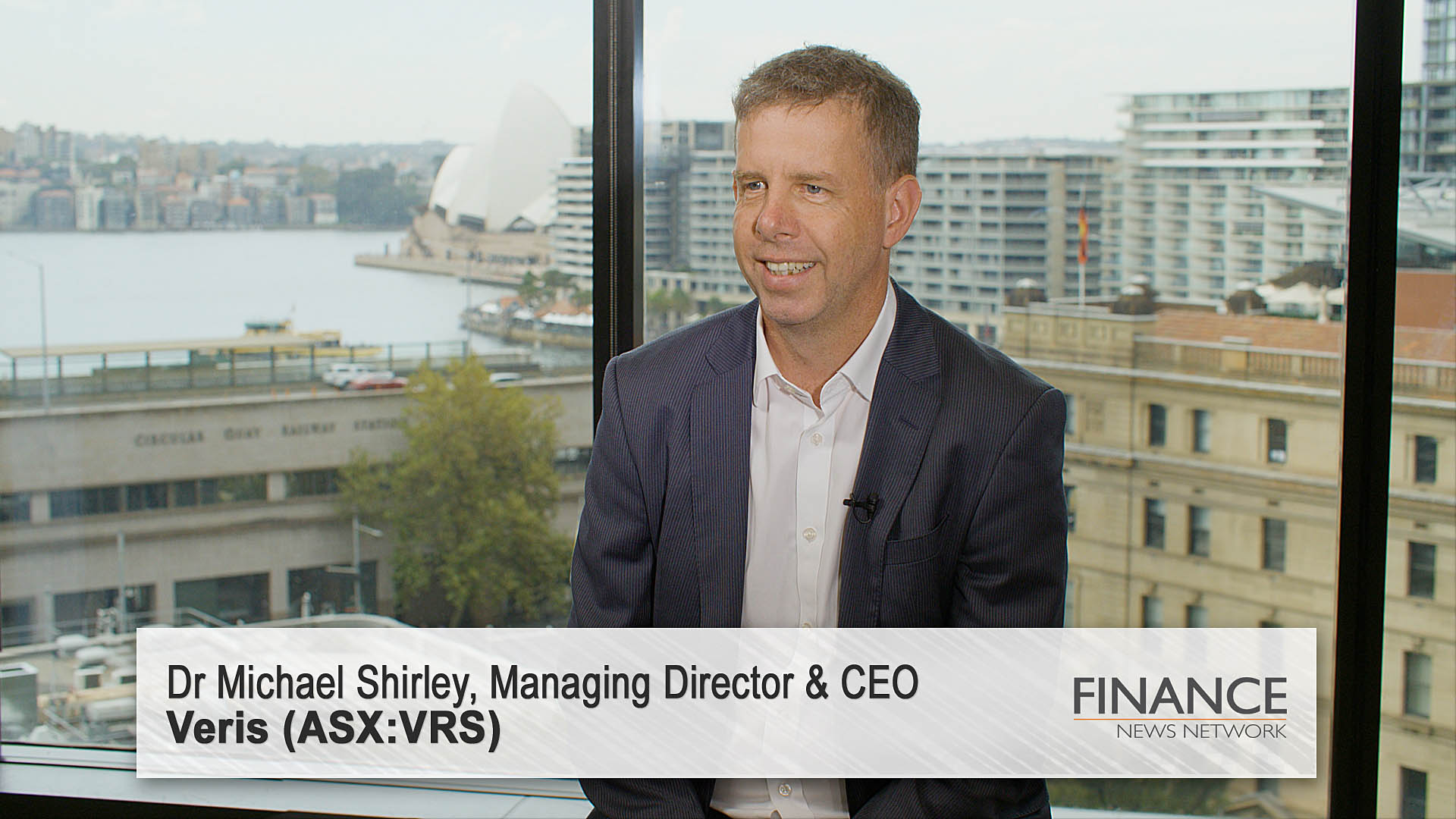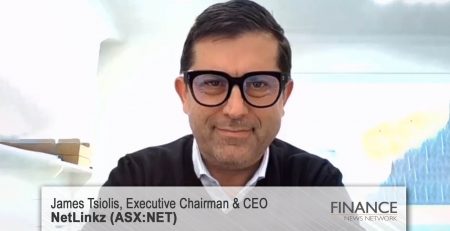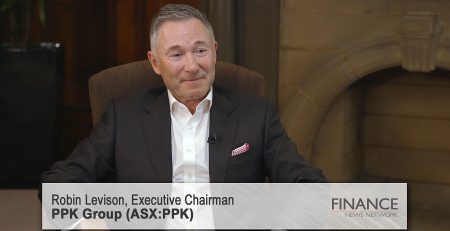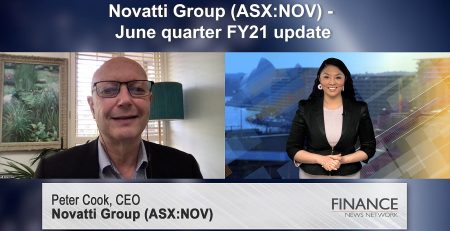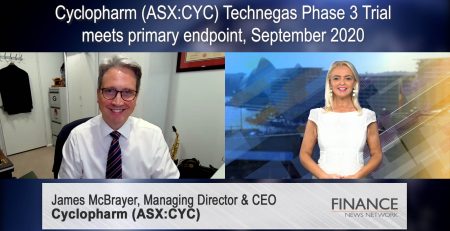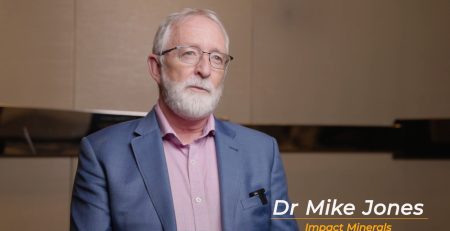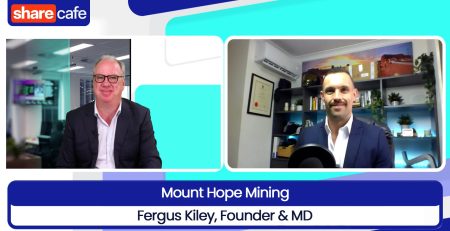The business of spatial data
Veris Limited (ASX:VRS) Managing Director and CEO Dr Michael Shirley provides an introduction to the company, discussing its services, the competitive landscape, revenue breakdown, growth opportunities and strategy.
Tim McGowen: We're talking today with Veris (ASX:VRS). The company is Australia's trusted and leading provider of spatial data services. It's got an ASX code of "VRS" and a market cap of around $50m. The company provides services to both private- and public-sector clients across the infrastructure, property, resources, utilities, government and defence sectors. Their impressive client list includes Stockland, Mirvac and Lendlease, blue chip mining companies such as BHP and Rio, as well as the host of major engineering consultants, tier-one contractors and government agencies. We have with us the CEO and Managing Director, Michael Shirley. Michael, thanks for your time.
Dr Michael Shirley: Thanks, Tim. Good to be here.
Tim McGowen: Now, for those shareholders or potential investors that don't know Veris, what industries do you service, and can you kind of explain your different services?
Dr Michael Shirley: We started as a surveying business, working across some of the more traditional surveying sectors around Australia. So, a property business, and we've got engineering surveying, which is the big infrastructure work. And then our real growth sector over the last year or so that we see has a future in it, is our digital and spatial business, which is a different play into the surveying sector and a real growth opportunity. And we've also got a small urban design planning business.
Tim McGowen: And you were on our a webinar a couple of weeks ago or so, talking about spatial data. For those who don't understand what the term means, can you explain?
Dr Michael Shirley: What do we really mean by that?
Tim McGowen: Yeah.
Dr Michael Shirley: Look, I think when we got into this business a couple of years ago with the new leadership group, we looked at the business and said, "It's a strong surveying practice. It works nationally in the traditional markets. But there's got to be more we can do with that business." And I come out of an engineering practice, and lots of years there. And you look at the data we collect around all of the infrastructure in Australia, there's more we can do with that data and the more value we can generate. So, we really feel that, as we go forward in time, we move away from being a surveying business, more about the spatial data we collect, and what we do with that. And we're in a bit of a unique proposition, because we collect that data, we've got relationships through our surveyors. We now can hold that data with our own bespoke platforms, and then we provide value and analysis off the back of that data. And so, it's that data flow through all three parts of the life cycle that makes us different, I feel.
Tim McGowen: I was going to ask you, does that differentiate you from your competitors?
Dr Michael Shirley: Look, it does. I think there's the traditional surveying businesses, who are generally privately owned and don't have the scale, or the balance sheet, or the ability to have impact nationally. And so, that puts us in a different position around technology. There's the software or the platform providers, but they don't have access to that data. They rely on people like us to bring the data to them. And then, there's others that do things with the data. But we've got the industry knowledge, the market positioning, to provide insights, and we really want to work at the high-value end of that chain.
Tim McGowen: And, of course, there's a bit of a history. Going back a couple of years, there was a restructure that's taken place. Can you give us a background on that history?
Dr Michael Shirley: So, the original business that we came from, a roll-up of a range of surveying practices, and the premise behind that strategy was all about building a national surveying practice in a really fragmented market. It's a tough small… Lots of small players. And they did a good job, acquired quality businesses. But then, through the integration, I think it started to struggle, became loss making, and that's when myself and the new leadership team came in, and we really focused on taking some cost out, simplifying the business, and then that pivot in the strategy from just being surveying to doing more with the data. So, that's the journey we've been on for the last few years. Unfortunately, it overlapped with COVID too, which created its own challenges. But I think, in the last year, and you've seen it in our first half results, we're starting to see how that base business goes forward, and the opportunities we're seeing in the spatial data space.
Tim McGowen: And what's the core revenue breakdown between industries and sectors?
Dr Michael Shirley: Our traditional property business, which is really now these days targeted at the bigger developers, the bigger projects, is about 40 per cent of our revenue. And it's a good-margin business for us. Our engineering practice, which is the big tunnels, road, rail, mining projects, is about 40 per cent. It's a lower margin, but really good high-volume, low-overhead business. And then, our digital and spatial business, that new growth sector, is about 15 per cent. But we've talked about in the past, that it's 60 per cent higher margin than the base business. And the growth option there for us is huge. So, two years ago that would have only been 5 per cent of our revenue. And we've seen it grow organically as we've tried to rebuild the base business to the 15 per cent position. And we see that, over the next few years, that ends up equal sizes to the other two components without them shrinking. And we see that that is what really starts to differentiate our margin and growth opportunities.
Tim McGowen: And is that what the market's looking at? You're kind of stabilised. Things are looking really solid. Are they looking at that new growth opportunity?
Dr Michael Shirley: I think they're looking twofold at the moment for us. One is, there's still a lot of people that are saying, "We bought into the base business. Show us it makes money." And we're demonstrating that track record over the last year or so, and people want to see good stable earnings at the moment in that base business. And I think that in its own right will be a good proposition. I think there's others who are joining saying, "Oh, I see you've got something in this digital space." And we would say that we're differentiated, because everyone else talks about a digital strategy. The difference we've had over the last couple of years is we've only talked about things we're actually doing, things we're making money in, things we're delivering with clients, and we can show how we monetise our digital strategy. Others talk about, you know, a good game and opportunities, but we know we had to have runs on the board. So, people have seen that and seen the upside. I think part of our trick at the moment is trying to communicate that and engage people in it without being unrealistic in tech-stock valuations.
Tim McGowen: So, there's a good balance to the revenue mix from the kind of probably lower-margin, more defensive-style industries, relative to this data space?
Dr Michael Shirley: I think so. I think that our base business is in really good sectors. You've got the infrastructure spend, you've got government spend, you've got defence spend, that we all know will continue. All of these are sectors around the country that we see good long-term steady growth. And so, people should look at that, and look at the earnings from us in that area and go, "That's a pretty safe bet. When they make the digital piece work and differentiate, then you get the upside on it." And that's been the piece that's been a real focus for us. Let's earn that credibility, take the next steps. And there's no one else really out there in that position who've got that base as well as building the digital piece on top of it.
Tim McGowen: And do you see that revenue, moving forward, maintaining that recent trajectory?
Dr Michael Shirley: Look, I think we've had, you know, year on year, well over 10 per cent growth each year. And particularly during COVID, that wasn't a…
Tim McGowen: ..an easy task?
Dr Michael Shirley: Yeah. That's right. And I think that we see that now, though, we're pretty resource-constrained in our sector. And our focus isn't on just chasing revenue, it's about actually chasing margin and good-quality work. So, when you can't get the people, what are the choices we make? What projects do we want to do? Can we do more of the digital work, because that gives us the upside? That's been a really important focus for the team. And I think we'll see growth, continued growth, but where we've got a focus on is the margin growth and translating that through to bottom line.
Tim McGowen: And, just looking here, you kind of transformed your balance sheet with the sale of Aqura, resulting in net cash of around $18m in December. How has this helped the business looking forward?
Dr Michael Shirley: Look, it was one of our focus areas when we joined three years ago, is at that point we had $18m of debt, pretty low share price. I don't think I want to go back there, and then a rebuilding the business. And so, we always knew that that poor balance sheet we had at that point was really costing us operational money and also costing us opportunities going forward. We ended up with, ourselves and Aqura, both standalone businesses, both in need of capital, and both with a big opportunity to grow. So, when we sold that business to Telstra, it was good for the Aqura business, because they got the growth that they needed. It freed us up and gave us a singular focus to go forward, which is critical for us. And we now know we have one strategy and way forward. I think the cash on the balance sheet is now, we've leveraged that really hard in terms of operational savings, what we do with some of our financing, and what we do with some of our equipments, some of our national providers, even with our banking arrangements. All of those things in the past have cost us a lot, because we've been seen as a challenged asset. And whereas now, we come into those conversations in a position of strength, and able to get a much better deal operationally, and that flowing through for shareholders. I think the other thing that's taken us into is we now can move back into the acquisitive space, and really look at opportunistic mergers and acquisitions that I think will transform where we're going with our strategy. So, in the past, you know, there was no point in adding something to a business that was loss making. You need something that's growing organically and making good profit. And so, we're now in that position where we can look and say, "Is there an area that helps us execute faster on strategy or fills a gap?", and being in that position. So, having $18m of cash makes those conversations a lot easier and a lot more productive.
Tim McGowen: Michael Shirley, thanks for your time.
Dr Michael Shirley: Appreciate your time, Tim.
Ends
Copyright 2023 – Finance News Network
Source: Finance News Network

